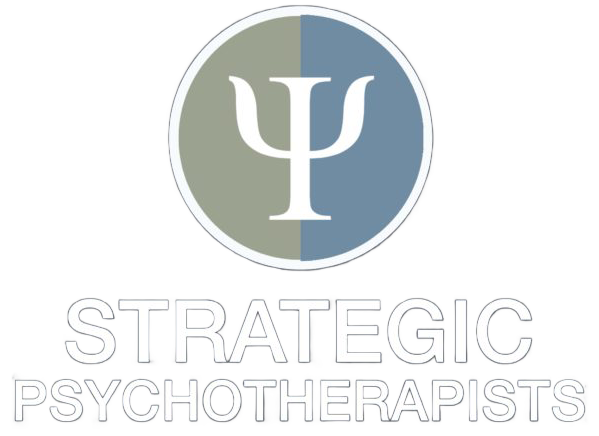Is there a difference between hypnosis and hypnotherapy?
Hypnosis in itself is not a therapy.
Hypnosis is a tool that enables the mind to be guided into a relaxed state where your attention will be focused and your mind will be receptive to absorbing new perspectives.
When any psychotherapeutic approach uses the tool of hypnosis, then it’s called hypnotherapy.
What’s the difference between Traditional and Modern Hypnotherapy?
Traditional hypnotherapy
In the past, traditional hypnosis was more common. Traditional hypnotherapists are very directive, they tell you how to relax and then tell you how you will feel better. They have a range of scripts that target standard symptoms like insomnia. They get results for a percentage of people, if their symptoms fit the mould. However, the result might be short lived or simply not effective.
How many people have you heard say ‘I had hypnotherapy once years ago, it didn’t work’?
Traditional hypnotherapy courses are still popular as they are quick and therefore much cheaper, it is often a very brief course, maybe a weekend or two, and then the therapist relies on buying scripts online for each problem. It is so common that many of these scripts are available to the public to listen to online at no cost. You might even have tried one or two? They can be great for feeling relaxed and calm in a busy day, any form of hypnosis can feel like a massage for the mind. These sort of sessions also cost a similar amount to a massage, which is good value for chance to relax and unwind. But just like a massage, the benefits have a limited period before you need another one.
Modern hypnosis
Sometimes known as Ericksonian or Neo–Ericksonian Hypnotherapy is based on the work of the most prominent psychotherapist of the twentieth century, Milton Erickson. This approach is more permissive or indirect. It treats the client as an individual with skills and resources, looks for the ‘gaps’ they have that are leading to the problem, and guides the person to the solution by utilising their own inner resources. Often leading to improvements in many areas of their lives and not just the problem area. This is why a therapeutic psychotherapy session incorporating hypnosis will start with an in–depth discussion. It’s not about finding out why your problem exists for you, we don’t need to work out what triggered it in the first place, but to understand how your problem is being maintained. By identifying the process that is keeping you stuck, we can address the individual elements and help you to create new patterns, which serve you better. So much insight can be gained from the talk before the hypnosis, where you can come to understand how a simple change in your pattern of thinking will be beneficial. Then during hypnosis therapeutic suggestions will help your unconscious mind accept and create new patterns more easily than by talking alone.
What is Strategic Psychotherapy?
Strategic Psychotherapy is a brief solution–oriented therapy, which means; the aim of therapy is to work toward a specific goal in a short amount of time. Results can be achieved in as few as 4–6 sessions, unlike other forms of psychotherapy that can take weeks, months or years.
With Strategic Psychotherapy, we can identify the ‘how’ of your problem, rather than the ‘why’. Knowing ‘why’ you have a problem doesn’t help you move forward. Knowing ‘how’ means we can find a way to help you do things differently. During the discussion at the start of the session we determine the unique way in which you process information, then using hypnosis, when you are relaxed and more receptive to suggestion, we offer you an alternative way of doing that. This approach is based on the principle that everybody has the necessary inner resources, and also the ability to change.
NLP can change the way you think
When you have positive thoughts, you create positive emotions.
When you have positive emotions, you will choose positive actions.
When you repeat positive actions, you create positive habits.
When you repeat positive habits the benefits will have a positive effect on your whole life, as your thoughts will create your reality.
What is NLP and how is it useful?
NLP or Neuro–linguistic Programming is not easy to explain briefly. It can be useful to think of it as interrupting the patterns of behaviours, habits and thoughts that are negatively impacting our lives, and adopting new perspectives, by finding new ways of talking to ourselves (thinking), and behaving, so that our habits change. By utilising subtle techniques it is possible to alter the way we think, see, feel and act. NLP tools can appear to be very simple, its hard to believe something so easy can have such a profound effect.
What does being in a state of hypnosis feel like?
It feels as natural as simply listening with your eyes closed. Which is all it really is. Sometimes you are totally focused on what the therapist is saying, sometimes you are more focused on where your thoughts take you.
Modern therapists are moving away from describing the state of being in hypnosis as ‘trance’ because of the negative associations that go with the word, such as mind control. (you can read more about this in Myths about hypnosis)
Most people would agree that a session of hypnosis feels like a pleasant state of deep relaxation. It’s similar to daydreaming, and when your focus comes back to the room around you, there’s often a sense of calm and wellbeing.
Some clients choose a hypnotherapy session over a massage, as a regular way of calming down, relaxing and recharging.
Why is hypnotherapy becoming more popular?
After an era of pharmaceutical treatments for anxiety and stress related conditions, more people are coming to realise that medication is often a short–term fix and a band aid that just covers the problem, rather than dealing with it. Hypnosis is gentle and natural, but also incredibly powerful. When in hypnosis your mind is guided toward accepting suggestions of alternative ways of thinking about things.
Hypnotherapy is known to facilitate rapid change, unlike other forms of talking therapies such as counselling that can take months or years to have an outcome. Therefore it is much cheaper.
At YouHypnotherapy I don’t try to find the ‘why’ of your problem, therefore I don’t use past–life regression or waste time trying to discover what experience or event might have triggered your problems, or risk re–traumatising you from a previous experience. I seek to change the patterns that have lead you to this point and make a positive change by giving you a new perspective.
Is hypnosis effective?
As long ago as the 1950s the British Medical Association (BMA) approved the use of hypnosis for some areas of pain management in childbirth and surgery, and psychoneurosis. Since then there is an increasing amount of research evidence to show how hypnotherapy can be effective for treating so many conditions. Mainstream medicine has begun to embrace hypnotherapy for treating many problems, perhaps initially because all previous interventions using surgical and pharmacological avenues were exhausted, but as the evidence mounts, more doctors are referring their patients for hypnotherapy and many are even integrating hypnotherapy into their own practice.
Another indication that clinical hypnotherapy is now considered an effective complimentary therapy is that many health funds offer rebates to hypnotherapy clients.
Hypnotherapy is fast becoming a preferred option rather than a last resort, as more people are choosing to avoid taking medications and looking for safer and more natural forms of treatment.
Whilst many psychological and emotional issues such as phobias, anxiety and addictions have long been known to improve with hypnosis, many conditions previously believed to be purely physical have been shown to respond extremely well to hypnotherapy. Some of the most commonly referred medical conditions are; Irritable bowel syndrome (IBS), Migraines, Insomnia and chronic pain.
Other conditions believed to be strongly influenced by an emotional component such as fibromyalgia, asthma, several skin conditions including warts, and nausea can also be helped.
Hypnotherapy for dentistry is becoming much more common as it can help a patient be less anxious about procedures, experience less or no pain during procedures, and there is also evidence that hypnosis can inhibit localised blood circulation during surgery and help with post–operative pain.
Hypnotherapy for childbirth is being utilised more to help diminish the pain associated with labour. More recently hypnotherapy is being used to enhance sports performance, and also academic and professional performance, along with confidence building and self–esteem issues.












 I acknowledge the Bunurong People of the Kulin Nation and their Elders past and present as the Traditional Owners and Custodians of the land where I live and work.
I acknowledge the Bunurong People of the Kulin Nation and their Elders past and present as the Traditional Owners and Custodians of the land where I live and work. All are welcome
All are welcome